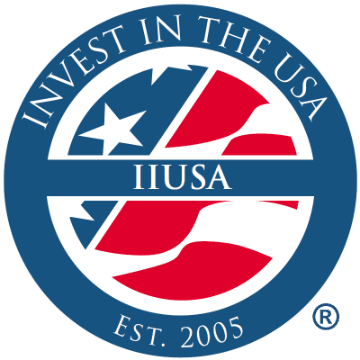 IIUSA Executive Director, Peter D. Joseph, submitted a statement for the Congressional Record to the House Judiciary Committee in response to the hearing held on March 8, 2017 titled The Department of Homeland Security’s Regulations Reforming the Investor Visa Program.
IIUSA Executive Director, Peter D. Joseph, submitted a statement for the Congressional Record to the House Judiciary Committee in response to the hearing held on March 8, 2017 titled The Department of Homeland Security’s Regulations Reforming the Investor Visa Program.
The statement emphasizes the important economic development occurring across the United States being spurred by the EB-5 Regional Center Program and re-emphasized the organization’s support of measures to increase program integrity and deter fraud through reasonable and responsible reforms to make the Program a stronger, more sustainable economic development tool.
Read the Letter
RE: March 8, 2017 Full Committee Hearing, “The Department of Homeland Security’s Proposed Regulations Reforming the Investor Visa Program”
Dear Chairman Goodlatte and Ranking Member Conyers:
Invest in the USA (IIUSA) respectfully submits this statement for the record to the House Judiciary Committee in regards to its hearing held on March 8, 2017, “The Department of Homeland Security’s Proposed Regulations Reforming the Investor Visa Program.” IIUSA is the national non-profit trade association for the EB-5 Regional Center industry with a mission of advocacy, education, industry development and research. Founded in 2005, we are a diverse membership of over 250 Regional Center members and 200 associate members, collectively representing big and small projects, urban and rural economic development, and industry sectors ranging from real estate, manufacturing and energy to infrastructure, healthcare to education and more. Our Regional Center members are engines for economic growth in the United States, responsible for over 95% of EB-5 capital investment nationwide. The Program now annually accounts for almost $4.5 billion in foreign direct investment (“FDI”), billions of dollars in gross domestic product (“GDP”), tens of thousands of U.S. jobs, and billions of dollars in federal/state/local tax revenue – all at no cost to the taxpayer.
The Notice of Proposed Rule Making (NPRM) and Advanced Notice of Proposed Rule Making (ANPRM) published in the Federal Register by the Department of Homeland Security (DHS) in January 2017 pose many threats to the life and vitality of the EB-5 Regional Center Program and these measures must be carefully looked at as their repercussions would be at the detriment to thousands of American jobs and the families and communities that rely upon them all across our nation. IIUSA has long advocated for reasonable and responsible reform of the Program and has worked with other stakeholders and lawmakers to reach compromise that both provides needed reforms for fraud deterrence and oversight while ensuring the Program is able to thrive for many years to come, providing capital to regional economic development projects.
As a matter of economics, the dramatic increase in investment amounts would surely decrease demand in the Program, causing investors to seek immigrant investor programs in other countries with lower investment amounts and/or less risk. The U.S. program is unique in the both the job creation and at-risk requirements investors must meet in order to secure their permanent residency. While other countries, such as the United Kingdom or Australia, may have investment requirements that are higher than the U.S.’s $500,000 or $1,000,000 amounts, those programs can be more attractive to investors in several significant ways: 1.) the investor does not have to put their investment at-risk with no guarantee of return; 2.) their residency status is not conditional once the investment is made; and 3.) there are no job creation requirements. In short, they key competitor programs across the globe have less risk, guaranteed investment return and no job-creation string attached
Given these points, it is important to keep the U.S. program competitive in the international market by not over-inflating the increased investment amount. It is also important to keep in mind that with any targeted employment area (TEA) reform, a majority of investors would likely be moving from TEA-qualified investment amounts (or the lower amount) to non-TEA-qualified amounts (or the higher amount). The proposed rule would result in a 360% increase for most investments. It is difficult to imagine a dramatic increase in the investment price would not result in a dramatic decrease in demand for the American EB-5 program, thus, cause a significantly negative impact on EB-5 jobs and investment in America.
TEA reform is needed in order to help enhance the Regional Center Program as an economic development tool and allow for a more even playing field that eliminates the “gerrymandering” criticism of the current statute. IIUSA has taken much time and care to curate a TEA policy mapping tool that visualizes the impact of various TEA policy reforms that have been introduced over the course of reform discussions. We encourage members of the House Judiciary Committee and all members of Congress to utilize this interactive tool to best inform your discussions on this topic.
IIUSA is supportive of measures that increase program integrity, deter fraud, and overall make the Program a stronger, more sustainable economic development tool, therefore we encourage legislators to work with the EB-5 industry to come to a legislative agreement that provides for reform and long-term authorization of the EB-5 Regional Center Program.
At a time when President Trump is emphasizing investment in America to create American jobs, we urge the Congress and DHS to reform and reauthorize this unique program in a way that allows us to compete with other countries and achieve the bipartisan and shared goals of American jobs and investment. Raising the EB-5 investment levels to those proposed by the Obama Administration only days prior to leaving office would reduce jobs and investment and make America less competitive with countries like the United Kingdom, Australia and New Zealand.
Sincerely,
Peter D. Jospeh
Executive Director









